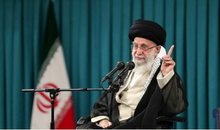
 Flash News
Flash News
The US is involved in the war, why did Trump take the risk of attacking Iran?
Bosnian tourist drowns in Durres
Massive accident on the Librazhd-Qukas axis, 3 injured, one in critical condition
An apartment in Yzberisht is engulfed in flames
Robbed a jeweler in Gjirokastra in 2021, 45-year-old extradited from Greece (NAME)
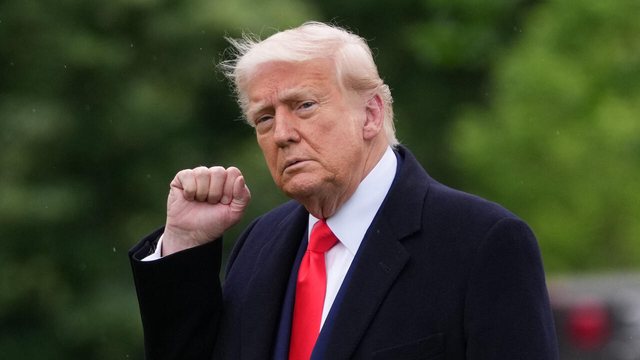
During the 2024 presidential campaign, President Donald Trump warned that Joe Biden or Kamala Harris (if she succeeded him) would lead the world into “World War III.” Today, Trump is putting that very warning to the test, risking making it a reality.
In a statement issued Saturday evening, Trump declared the US military strike on Iran a success. According to him, American bombs capable of penetrating bunkers had completely destroyed Iran's nuclear capacity.
It will take time to learn whether Iran and Israel themselves, the two main actors in a scenario not written by Trump but in which he now plays the leading role, will share the same assessment as the American president. But Trump hopes that his demonstration of formidable power will serve to end the conflict.
However, the decision to end the war is not in his hands.
How did Trump get here?
Whatever happens next, it’s worth remembering how the events that led Trump to this point unfolded. Ten days earlier, Benjamin Netanyahu had derailed plans for a nuclear deal with Iran with a series of devastating missile strikes. The Israeli prime minister declared that Iran was weaponizing its nuclear program and posed an existential threat.
Most international actors, including the American intelligence community, do not share this assessment with Netanyahu.
After this development, which undone efforts to reach the deal he wanted, Trump chose to embrace the Israeli line. He demanded Iran's unconditional surrender and declared that he could eliminate the country's supreme leader, Ali Khamenei, at any moment.
Iran did not bow to Trump's ultimatum. The de facto declaration of war he made on Saturday night was a direct consequence of this confrontation.
It is important to note that no one, including Donald Trump himself, knows what will happen next. It is easy to start a war, especially when you have the most powerful army in the world at your disposal. But wars only end when one side surrenders.
The old warning about the “fog of war” is particularly pertinent to today’s Middle East, where there are often more than just two warring parties. The enemy of your enemy may turn out to be your own enemy.
At one point, irritated after being outmaneuvered by the younger Netanyahu, Bill Clinton said to an adviser: “Who the hell is the superpower here?”
Trump's brief televised statement after the attacks was intended to show his control over the situation. But in reality, it was Netanyahu who was dictating developments. Even he, however, cannot predict how Iran will respond.
Netanyahu's interests do not entirely align with Trump's. The Israeli leader has made it clear that he aims to overthrow the Iranian regime. Trump, meanwhile, is demanding his surrender.
The path to Netanyahu's goal could be a harsh Iranian response that would force Trump to escalate the conflict, a scenario he threatened in his statement. The scenario that suits Trump would involve a soft Iranian response that would allow him to declare "mission accomplished."
But how this story will unfold, and who will determine whether Iran’s response is symbolic or deadly, is largely beyond Trump’s control. That leaves him as the most powerful military actor in the Middle East, but potentially hollow in influence. For true power is measured by the ability to shape events, and Trump is largely their captive.
Regardless of what happens next, Donald Trump’s bombing of Iran has already sealed his presidency both domestically and internationally. This is now Trump’s war. Surrendering Iran would be a resounding victory for him; but a full-scale war would risk sinking his term.
Among the many ironies, one of the most prominent is the fact that many of Trump's once vocal critics , especially the "Never Trumpers" who warned him about the dangers of his authoritarianism, are now supporting his strikes against Iran. They are willing to risk the consequences that a war could bring to Trump in the form of increased presidential power.
Meanwhile, another irony that stands out is the skepticism of Trump's allies from the "MAGA" movement, such as Steve Bannon, who see this new and potentially more dramatic chapter in the series of "permanent wars" as a betrayal of the president's promises to end them.
Only a naive person would take Trump's word for granted, given that he has repeatedly broken it. But one thing is certain: his dream of winning the Nobel Peace Prize seems increasingly out of reach.
Without consulting Congress and perhaps in violation of international law, Trump has taken a dangerous step that could be decisive for his political future. Whether he fully understands it or not, he is now committed to this endgame.
Ultimately, it is Iran and Israel that will have as much say as Trump himself in determining how and when this crisis ends./ Financial Times
Latest news

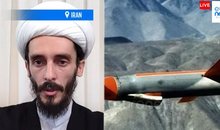

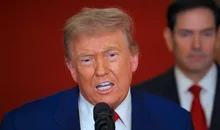
The US is involved in the war, why did Trump take the risk of attacking Iran?
2025-06-22 20:28:22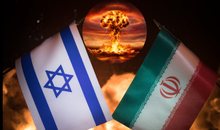
Israel-Iran conflict increases global tensions: Is the Albanian economy at risk?
2025-06-22 20:02:04
The US bombed Iran/ Rama: I support Trump's sincere efforts!
2025-06-22 19:40:21
Bosnian tourist drowns in Durres
2025-06-22 19:05:48

The 10 strongest criticisms of the PACE report on the May 11 elections!
2025-06-22 18:41:21



An apartment in Yzberisht is engulfed in flames
2025-06-22 17:32:13


Rinderpest/ The number of outbreaks rises to 10, here are the affected districts
2025-06-22 16:25:12

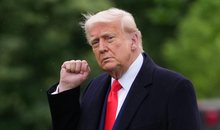
"Trump has opened Pandora's box"
2025-06-22 15:10:04

Pope Leo XIV: Stop the tragedy of war before it becomes an irreparable abyss
2025-06-22 14:24:22
Criminal group busted in Belgium, 10 Albanians among those arrested
2025-06-22 14:00:58
Cities race for tourists, Tirana cheapest, but busiest
2025-06-22 13:35:53
Kurti supports US strike: International security needs fewer nuclear weapons
2025-06-22 13:18:54
Selling drugs in the former Bllok, 23-year-old arrested
2025-06-22 12:57:58
Berisha supports US strike on Iran: Strong call for overthrow of dictatorship
2025-06-22 12:39:35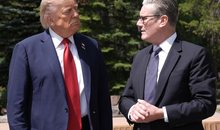
Starmer supports US attack on Iran, calls on Tehran to return to negotiations
2025-06-22 12:20:56
Sentenced to 8 years in prison in Italy, 33-year-old Albanian arrested
2025-06-22 11:54:45
Iran condemns US attack on nuclear facilities, warns of consequences
2025-06-22 11:34:21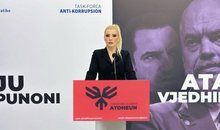
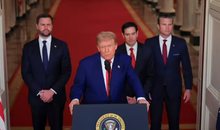

Albanian Railways is affected by collective staff cuts
2025-06-22 10:46:46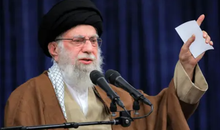
The US has changed the course of the conflict - how will Iran respond?
2025-06-22 10:24:26
Cannabis in drainage canals, 48-year-old arrested in Fier
2025-06-22 10:06:41
Albanians 'invade' New York, thousands march in the Red and Black parade
2025-06-22 09:44:26
Foreign exchange, the rate at which foreign currencies are sold and bought
2025-06-22 09:27:27
Is it worth buying an apartment to rent out?
2025-06-22 09:12:40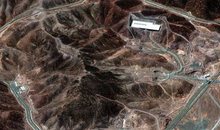
US bombs Iran, hits three Tehran nuclear sites
2025-06-22 08:53:08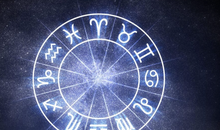
Horoscope, what do the stars have in store for you today?
2025-06-22 08:35:50
Weather forecast/ How temperatures will change during the day
2025-06-22 08:20:43
Morning Post/ In 2 lines: What mattered yesterday in Albania
2025-06-22 08:00:29
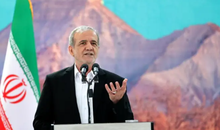
Iranian President: We will not stop nuclear program
2025-06-21 21:46:32
Europe hit by first heat wave: Up to 40°C expected this weekend
2025-06-21 21:19:19
Borussia Dortmund claim first win in Club World Cup
2025-06-21 20:56:04

Accident on the Puka-Shkodra axis, two injured
2025-06-21 20:05:04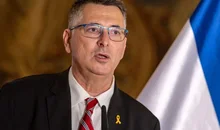

ChatGPT can damage your brain, here's what the study says
2025-06-21 19:20:25


Belarus opposition leader released after five years in prison
2025-06-21 18:22:57
Renowned journalist and teacher in Korça, Vehbi Furxhi, passes away
2025-06-21 18:06:16
Accident in Fier-Levan, two injured
2025-06-21 17:43:25
Tourism in traffic, when roads undo success
2025-06-21 17:25:31

Broja on the verge of leaving Chelsea, 4 teams in talks for midfielder
2025-06-21 16:42:02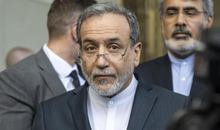
Iran confirms death of tenth nuclear scientist
2025-06-21 16:24:28

The Balkans as a warehouse for migrants?
2025-06-21 15:49:53
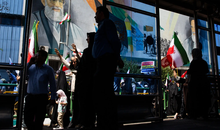
Khamenei names potential successors if he is killed
2025-06-21 15:10:58


Memli Krasniqi re-elected as PDK chairman
2025-06-21 14:29:12

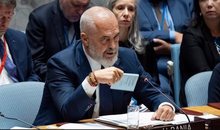

Israel says it has eliminated another top Iranian commander
2025-06-21 12:43:26

Iran and Israel exchange new attacks, Tehran rejects talks with the US
2025-06-21 12:00:20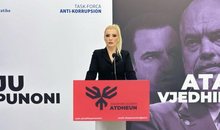
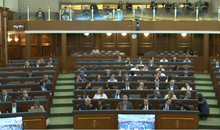
The impasse continues, the constitution of the Assembly fails for the 35th time
2025-06-21 11:14:23

Report: Cadastre ignores Parliament and ALSAI recommendations
2025-06-21 10:35:59
Car loses control on Tepelena-Kelcyrë road, driver injured
2025-06-21 10:14:47

It failed 34 times, today a new attempt to constitute the Kosovo Assembly
2025-06-21 09:37:02
Foreign exchange, June 21, 2025
2025-06-21 09:17:10


With temperatures up to 35 degrees, check out today's weather forecast
2025-06-21 08:15:54
Morning Post/ In 2 lines: What mattered yesterday in Albania
2025-06-21 07:58:20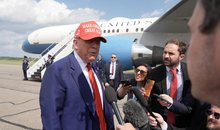


Dance with the mask of evil
2025-06-20 21:11:50
Matura 2025, Albanian Language and Literature exam grades published
2025-06-20 20:40:37
Tabaku: Albania has African wages and European prices
2025-06-20 20:33:02
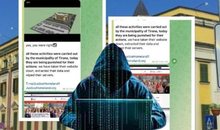

UK temporarily withdraws embassy staff from Iran
2025-06-20 19:16:02
How Albania became the country with the highest cost of living
2025-06-20 18:49:11


Hail and strong storm "grab" Belshi
2025-06-20 17:35:56

School closures increase parents' financial burden during the summer
2025-06-20 16:49:19
KAS dismisses SP over vote revaluation
2025-06-20 16:34:02

